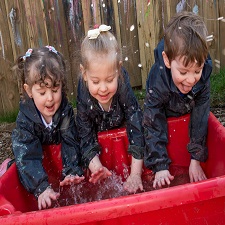I am very proud to be the Headteacher of Roskear Primary and Nursery School and part of Crofty Multi-Academy Trust. Roskear has a very special community where the children embody our core values of being caring, active, ambitious, inquisitive and happy – as you explore our website and school you will find many examples of this.
Our highly talented teaching staff are ambitious for every child in their care and bring excellence and enjoyment together to the classroom. We know that children learn best when they are excited and engaged, so we have created a curriculum which does just that. At Roskear the excellent teaching challenges the children and shows them what they can achieve. Our results are evidence of the fact that children at Roskear make exceptional progress, well above National expectations year after year.
We place great emphasis on developing strong relationships with all our children, parents and carers, along with our local and wider community, to provide the best possible outcomes for our children.
My door is always open to parents, carers, prospective parents and, of course, to our children. As a school we value all feedback and believe that the best way for our children to succeed is by everyone working together.
If you would like to arrange a visit, please call Mrs Snell, our school secretary and I will be happy to welcome you to our school. In the meantime, I hope that you enjoy looking at our website.
Headteacher
Nicola Furnish
HOUSE POINTS
Crofty
2,375
Geevor
2,561
King Edward
2,423
Poldark
4,465







